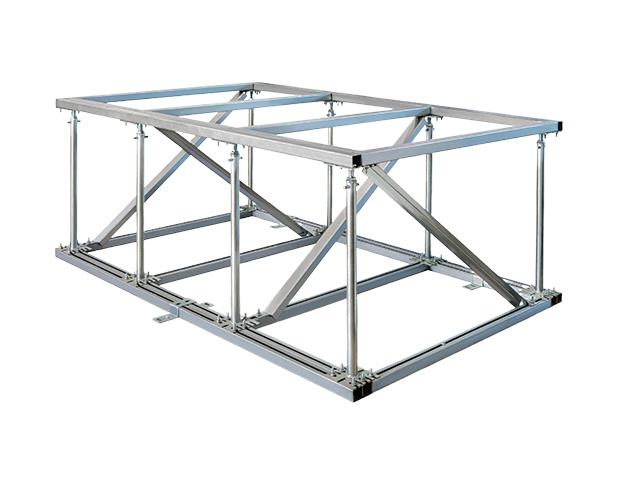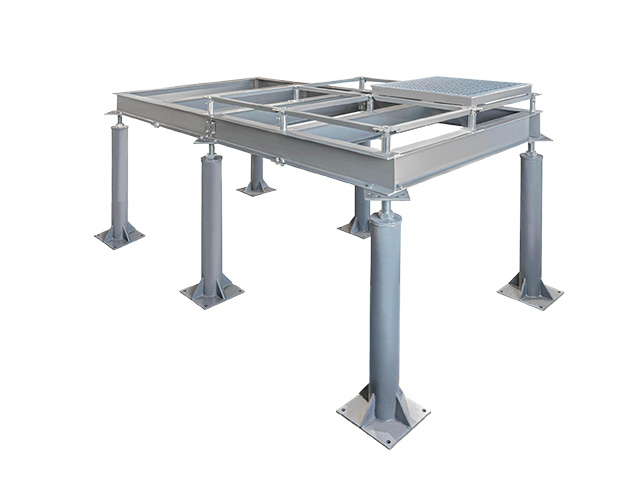The Top 5 Advantages of Using Elevated Floor Systems: Transforming Your Space
The Top 5 Advantages of Using Elevated Floor Systems
Elevated floor systems have become increasingly popular in modern architecture and interior design. These versatile structures not only offer aesthetic appeal but also provide functional benefits that can transform spaces. In this article, we will explore the top five advantages of using elevated floor systems, explaining why they are an excelle
2025年10月16日
The Top 5 Advantages of Using Elevated Floor Systems
Elevated floor systems have become increasingly popular in modern architecture and interior design. These versatile structures not only offer aesthetic appeal but also provide functional benefits that can transform spaces. In this article, we will explore the top five advantages of using elevated floor systems, explaining why they are an excellent choice for various settings, including commercial buildings, office spaces, and residential homes.
Table of Contents
- 1. Enhanced Aesthetics and Design Flexibility
- 2. Improved Airflow and Climate Control
- 3. Simplified Access to Underfloor Systems
- 4. Soundproofing and Acoustic Benefits
- 5. Increased Flexibility for Future Modifications
- FAQs about Elevated Floor Systems
- Conclusion
1. Enhanced Aesthetics and Design Flexibility
Elevated floor systems can significantly enhance the aesthetic appeal of a space. With various finishes and materials available, these flooring solutions offer designers and architects the freedom to create visually stunning environments. From sleek, modern office spaces to warm, inviting residential areas, elevated floors can be customized to meet any design preference.
Furthermore, elevated floor systems allow for creative use of materials. Designers can mix and match textures, colors, and styles, resulting in unique flooring solutions. Whether you prefer polished concrete, wood laminate, or carpet tile, elevated floors can accommodate your vision while providing a cohesive look throughout the space.
Design Versatility
The adaptability of elevated floor systems means they can be integrated into various architectural styles. For instance, in a contemporary office, a raised floor might feature a minimalist design with clean lines, while in a more traditional setting, designers can opt for a warmer, more classic finish. This versatility ensures that elevated floor systems can complement any aesthetic, making them a preferred choice in diverse environments.
2. Improved Airflow and Climate Control
One of the standout benefits of elevated floor systems is their ability to improve airflow and climate control. The space created between the raised floor and the original surface allows for efficient air circulation, which is crucial for maintaining a comfortable indoor environment. This airflow can help regulate temperatures, making spaces more energy-efficient.
Enhanced HVAC Efficiency
With elevated floors, HVAC systems can be easily integrated. Ducts and vents can be placed under the raised floor, allowing for a more efficient heating and cooling distribution. This setup not only optimizes temperature control but also reduces energy consumption, leading to cost savings on utility bills. Consequently, elevated floor systems are an eco-friendly option that aligns with sustainable practices.
3. Simplified Access to Underfloor Systems
Elevated flooring provides easy access to the underfloor systems, including electrical wiring, plumbing, and telecommunications. This feature is particularly beneficial in commercial environments where frequent changes or maintenance may be required. Rather than tearing up traditional flooring, technicians can simply lift a panel to access the underlying infrastructure.
Convenient Maintenance and Upgrades
The ability to access underfloor systems quickly and efficiently greatly reduces downtime. Businesses can perform upgrades or maintenance with minimal disruption to operations. This efficiency is not only beneficial for commercial spaces but also for residential settings, where homeowners may wish to upgrade their technology or utility systems without the hassle of extensive renovations.
4. Soundproofing and Acoustic Benefits
Elevated floor systems can also enhance soundproofing within a space. The design inherently provides noise insulation due to the air gap created between the floor and the original surface. This feature is particularly advantageous in office environments, where excessive noise can hinder productivity.
Creating a Quieter Environment
By incorporating sound-absorbing materials into the elevated flooring system, businesses can significantly reduce sound transmission. This benefit is essential for maintaining a tranquil atmosphere, especially in open-plan offices or areas where concentration is vital. Elevated floors can help create a quieter environment, promoting better focus and collaboration among employees.
5. Increased Flexibility for Future Modifications
As businesses grow and evolve, so do their spatial needs. Elevated floor systems offer the flexibility to adapt to changing requirements. Whether it's adding new technology, repurposing a space, or modifying layouts, elevated floors facilitate seamless transitions.
Future-Proofing Your Space
Choosing elevated flooring is a proactive approach to future-proofing your environment. With the ability to reconfigure spaces easily, organizations can respond to changing market demands, employee needs, or technological advancements without significant renovations. This adaptability not only saves time and money but also allows for a more dynamic workspace.
FAQs about Elevated Floor Systems
What are elevated floor systems made of?
Elevated floor systems can be constructed from various materials, including steel, concrete, wood, and composite materials. The choice of material often depends on the specific application and aesthetic preferences.
Are elevated floor systems suitable for residential use?
Yes, elevated floor systems can be used in residential environments, particularly in basements or areas where access to utilities is necessary. They can also enhance the aesthetics of modern homes.
How do elevated floors affect the height of a room?
Elevated floors raise the overall height of a room, which can create a more spacious feel. However, it is essential to consider ceiling height to ensure adequate clearance.
Can I install an elevated floor myself?
While some DIY enthusiasts may attempt to install elevated flooring, professional installation is recommended to ensure the structural integrity and proper function of the system.
What maintenance is required for elevated floor systems?
Maintenance for elevated floor systems is generally minimal. Regular cleaning and occasional inspections to ensure tight connections and stability are recommended.
Conclusion
Elevated floor systems present a myriad of advantages that go beyond mere aesthetics. From enhancing airflow and climate control to simplifying access for maintenance and upgrades, these systems are an excellent choice for both commercial and residential spaces. The soundproofing benefits and flexibility for future modifications further solidify the case for adopting elevated floors. By integrating these innovative flooring solutions, you can create an environment that is not only visually appealing but also highly functional and adaptable. Embrace the future of flooring with elevated systems, and transform your space into one that meets the demands of today and tomorrow.



